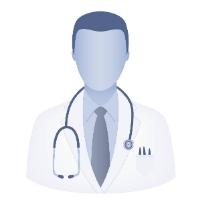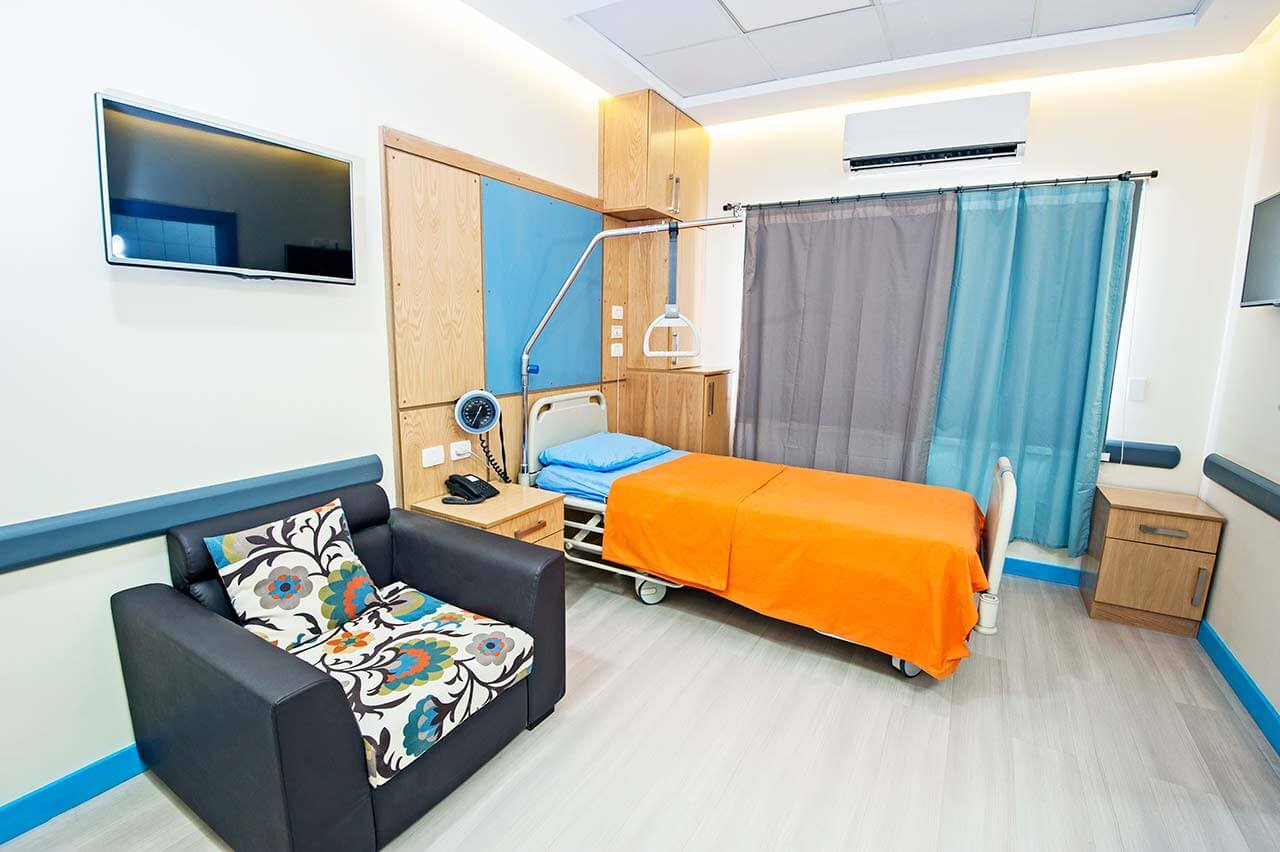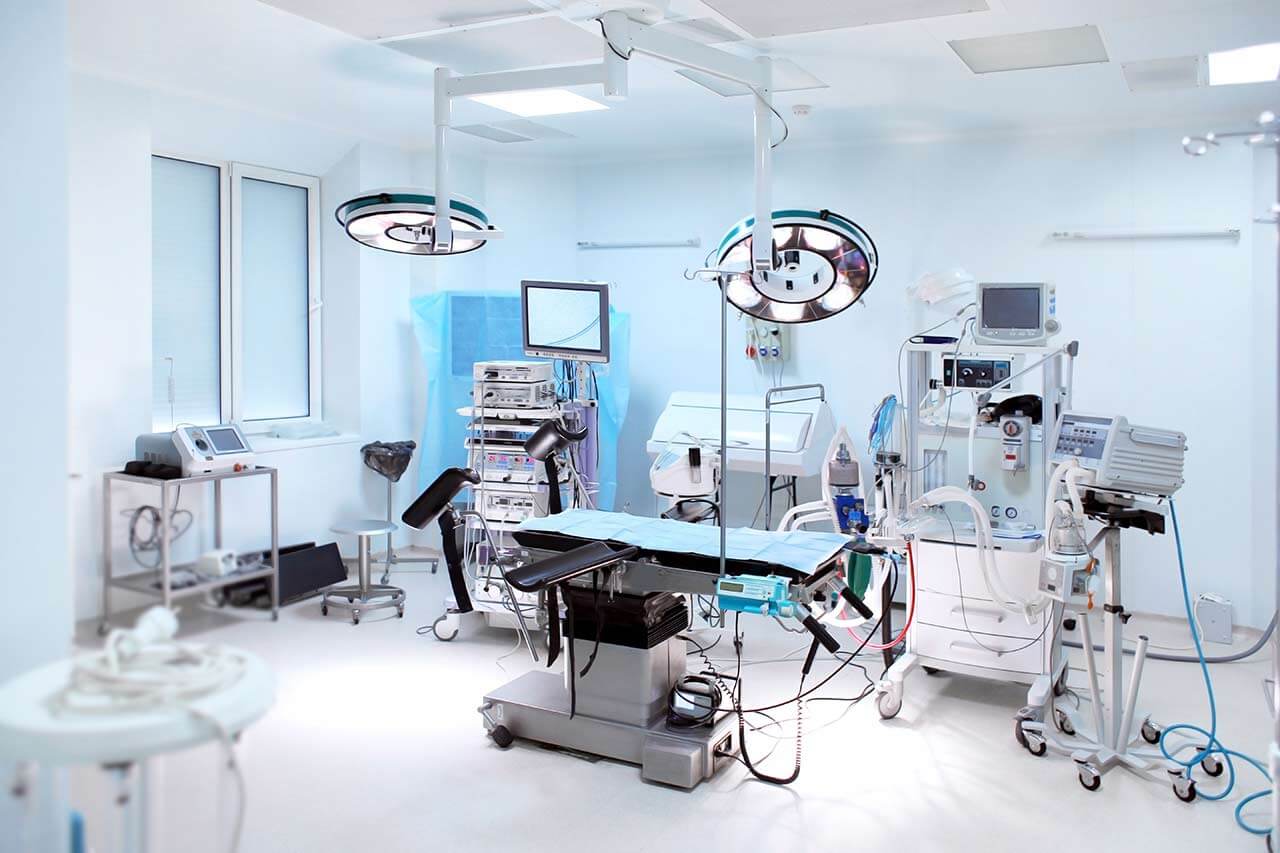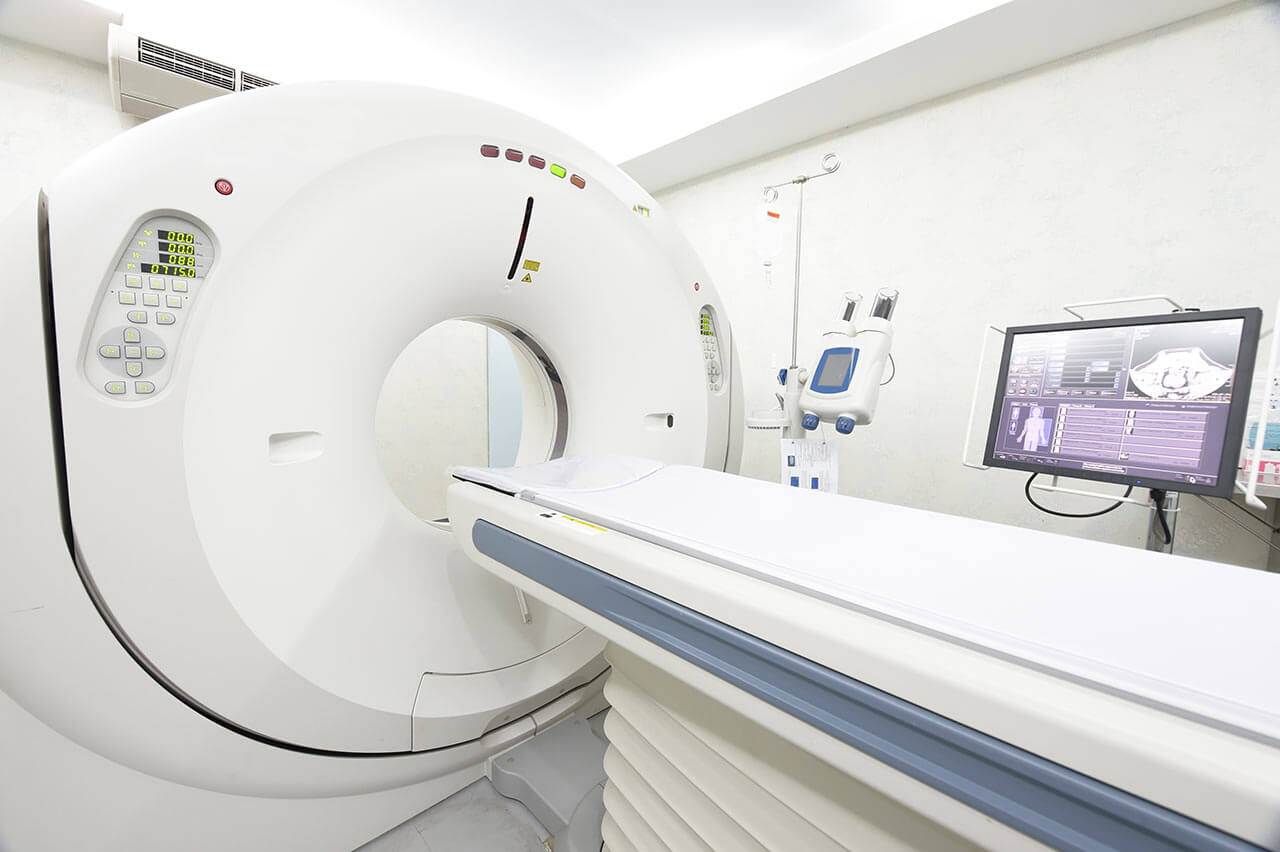
The program includes:
- Initial presentation in the clinic
- clinical history taking
- review of medical records
- physical examination
- urological examination
- laboratory tests:
- complete blood count
- general urine analysis
- biochemical analysis of blood
- inflammation indicators (CRP, ESR)
- indicators blood coagulation
- ultrasound pelvic
- preoperative care
- surgical correction of urethral channel
- symptomatic treatment
- control examinations
- the cost of essential medicines and materials
- nursing services
- full hospital accommodation
- explanation of future recommendations
Required documents
- Medical records
- Penis photo
Service
You may also book:
 BookingHealth Price from:
BookingHealth Price from:
About the department
The Department of Pediatric Surgery at the University Hospital Carl Gustav Carus Dresden offers the full range of surgical treatment for various diseases in children and adolescents, including premature babies and newborns. The department's specialists most often perform surgical interventions for the treatment of abdominal diseases, injuries, urologic pathologies, hydrocephalus, cancers, burns, thoracic pathologies and the correction of hand defects. When indicated, the preference is always given to minimally invasive interventions that ensure an optimal result with minimal trauma to healthy tissues. The department also widely uses innovative laser surgical techniques. For the high quality of medical services provided, the department was awarded the most prestigious certificate in the field of pediatrics – Ausgezeichnet. FÜR KINDER. The health of young patients is in the hands of the highly qualified surgeons whose professionalism is recognized in Germany and far beyond its borders. The department is headed by Prof. Dr. med. Guido Fitze.
The department's specialists often perform surgical interventions for the treatment of diseases of the gastrointestinal tract, liver and biliary tract, pancreas, spleen, as well as defecation disorders. The department's surgeons give preference to low-trauma interventions, during which surgical access is provided by means of several incisions in the skin and soft tissues of 1-1,5 cm in size. The operating rooms of the medical facility are equipped with state-of-the-art equipment that allows doctors to perform surgical manipulations of any degree of complexity.
The department also successfully performs many operations for colorectal diseases in children. The most common pathologies include rectal prolapse, anal fissures, anorectal malformations, anal atresia, Hirschsprung's disease, perianal abscesses and fistulas, as well as constipation. In some cases, the department's doctors recommend starting with monitoring dynamics, since certain pathologies can disappear on their own with age. For example, in the case of rectal prolapse, symptoms in children often disappear without any therapeutic manipulations.
The tasks of the department's doctors also include surgical interventions for diseases of the urinary system and reproductive organs in boys. The specialists of the medical facility have vast experience in the surgical repair of hypospadias, cryptorchidism and phimosis. In addition, the team of pediatric surgeons brilliantly performs surgery for ureteral stenosis, vesicoureteral reflux, megaureter, kidney duplication, urogenital sinus and other pathologies.
It should be noted that many operations are performed on an outpatient basis, so the child can leave the department on the same day. The interventions in the outpatient operating room are performed for inguinal and umbilical hernias, phimosis, removal of hemangiomas, keloid scars, ingrown nails, etc.
The department's surgical range of services includes:
- Abdominal surgery
- Interventions on the liver, biliary tract, pancreas, spleen and other gastrointestinal organs
- Treatment of defecation disorders, such as fecal incontinence, constipation
- Surgical treatment on an outpatient basis and in a day clinic
- Removal of metal structures after osteosynthesis
- Repair of umbilical and inguinal hernias
- Circumcision in phimosis
- Treatment of hemangioma with diode laser
- Emmert plasty for ingrown nail
- Laser treatment of hemangiomas, vascular malformations, keloid scars
- Surgical treatment of hand pathologies
- Syndactyly repair
- Polydactyly repair
- Surgical treatment of hydrocephalus (post-hemorrhagic and post-meningitis hydrocephalus, malformations)
- Surgical treatment of proctological diseases in children
- Anal fissures
- Rectal prolapse
- Anorectal malformations, anal atresia
- Hirschsprung's disease
- Perianal abscess/fistula
- Constipation
- Surgical treatment of injuries, including polytrauma and bone fractures
- Surgical treatment of urologic diseases
- Ureteral stricture
- Vesicoureteral reflux (primary and secondary forms)
- Megaureter
- Kidney duplication and urinary tract malformations
- Dilated uropathy (hydronephrosis)
- Ureterocele
- Congenital posterior urethral valves
- Bladder emptying disorders (bladder dysfunction, detrusor overactivity)
- Malformations of reproductive organs (urogenital sinus)
- Hypospadias
- Undescended testicles (cryptorchidism)
- Phimosis
- Diurnal and nocturnal enuresis (urinary incontinence)
- Surgical treatment of craniosynostosis
- Minimally invasive surgery
- Endoscopic interventions
- Appendectomy
- Cholecystectomy
- Fundoplication
- Ovarian surgery
- Urological interventions
- Heminephrectomy
- Nephrectomy
- Surgical treatment of varicocele
- Injection therapy for vesicoureteral reflux
- Ureterocele resection
- Renal pelvic plastic surgery
- Thoracoscopic operations
- Partial lung resection
- Esophageal atresia repair
- Diaphragmatic hernia repair
- Pleurodesis
- Laparoscopic interventions
- Endoscopic interventions
- Surgical treatment of newborns and premature babies
- Developmental defects
- Esophageal atresia
- Complete gastrointestinal atresia
- Abdominal wall defects
- Gastroschisis
- Omphalocele
- Spina bifida and skull splitting
- Myelomeningocele
- Encephalocele
- Diaphragmatic hernia
- Intestinal innervation disorders (Hirschsprung's disease)
- Genitourinary malformations
- Patent foramen ovale
- Developmental defects
- Thoracic surgery
- Repair of thoracic deformities (pectus excavatum, pectus carinatum)
- Lung malformations (lung cysts, pulmonary sequestration)
- Cancer surgery
- Malignant tumors (excluding CNS tumors)
- Benign neoplasms, lymphangiomas, hemangiomas, teratomas
- Treatment of burns (including steam burns) and follow-up plastic reconstruction
- Other surgical procedures
Curriculum vitae
University Education and Postgraduate Training
- 1991 Doctor of Medicine, Dresden University, Germany.
- 1993 Admission to medical practice.
- 2000 Board certification in Pediatric Surgery.
- 2003 Habilitation, Heidelberg University.
- 2004 Venia Legendi in Pediatric Surgery (Assistant Professor), Faculty of Medicine, Dresden University.
- 2009 Professor for Pediatric Surgery.
Professional Training
- 1991 - 1994 Resident, Department of Pediatric Surgery at the University Hospital Carl Gustav Carus Dresden.
- 1994 - 1995 Resident, Department of Surgery at the University Hospital Carl Gustav Carus Dresden.
- 1996 - 1998 Research Fellow, Department of Surgical Research, Dresden University.
- 1998 - 2000 Consultant, Department of Pediatric Surgery at the University Hospital Carl Gustav Carus Dresden.
- 2001 - 2003 Senior Physician, Department of Pediatric Surgery at the University Hospital Carl Gustav Carus Dresden.
- 2004 Managing Senior Physician, Department of Pediatric Surgery at the University Hospital Carl Gustav Carus Dresden.
Clinical Career
- Experience in Pediatric Surgery: surgical interventions on abdominal and thoracic organs, thyroid gland; plastic surgery, traumatology, surgical treatment of cancers.
Professional Appointments
- 2009 Professor for Pediatric Surgery, Department of Pediatric Surgery at the University Hospital Carl Gustav Carus Dresden.
Awards
- Fritz Linder Award.
- Ilse Krause Award.
Journals
- Consulting Editor, European Journal of Pediatric Surgery.
Photo: (с) depositphotos
About hospital
According to the reputable Focus magazine, the University Hospital Carl Gustav Carus Dresden ranks among the top five German hospitals!
The hospital is the benchmark for modern high-quality medicine. Positioning itself as a maximum care medical facility, the hospital represents all medical fields. There are 26 specialized departments, 6 institutes and 17 interdisciplinary centers, which cooperate closely with the clinical and scientific facilities of the Faculty of Medicine. The basis of successful practice is excellent equipment, which is regularly updated, as well as highly qualified, experienced medical personnel: world famous doctors and professors work here for the benefit of patients.
In addition to its main goal of caring for patients, the hospital is also active in training and professional development of medical personnel, as well as in the field of public health care. The priority focus of the work is research activity, which allows the doctors to introduce the innovative diagnostic and therapeutic techniques into clinical practice.
A special feature of the hospital is also the diagnostics and treatment of rare diseases. State-of-the-art equipment and well-coordinated work of doctors of various medical specialties make it possible to timely recognize pathologies rarely encountered in medical practice and select the most effective therapy. Specialization in rare diseases include neurology, endocrinology, hematology/oncology, and rare autoimmune diseases.
The hospital has 1,410 beds for patient hospitalization. About 55,900 inpatients and more than 233,975 outpatients undergo treatment here annually. A large medical team, consisting of about 1,000 highly qualified doctors, as well as over 2,000 nursing staff take care of the patients' health. Each patient is guaranteed an individual approach and the most effective treatment in accordance with current clinical protocols.
It should be noted that the university hospital enjoys an impeccable reputation not only in Germany, but also far beyond its borders, including Arab countries, post-Soviet states, Great Britain and the United States. Patients from different parts of the world come here for high-quality treatment for diseases of any severity. The highest credit of patient confidence is the main indicator of the fruitful work of doctors.
Photo: (с) depositphotos
Accommodation in hospital
Patients rooms
The patients of the University Hospital Carl Gustav Carus Dresden live in comfortable rooms made in bright colors and equipped with everything necessary. The standard patient room includes an automatically adjustable bed, a bedside table with a sliding table, a wardrobe, a telephone and a TV. There is also Wi-Fi (free) in the patient rooms.
If desired, patients may live in enhanced comfort patient rooms. These patient rooms have a more sophisticated design, upholstered furniture and a safe for storing valuables.
Meals and Menus
The patients of the hospital are offered a tasty, healthy and varied three meals a day. The menu is based on local cuisine and seasonal food. If you for some reason do not eat certain products, please inform the medical staff of the hospital in advance, and you will be offered an individual menu. The nutrition provided in the hospital is certified in accordance with the quality standards of the German Nutrition Society (DGE) for catering in German hospitals.
Further details
Standard rooms include:
Religion
The religious services are available upon request.
Accompanying person
Your accompanying person may stay with you in your patient room or at the hotel of your choice during the inpatient program.
Hotel
You may stay at the hotel of your choice during the outpatient program. Our managers will support you for selecting the best option.
The hospital offers a full range of laboratory diagnostic procedures (general, hormonal, tests for tumor markers, infections, antibodies, etc.), genetic tests, various modifications of ultrasound scans, CT scans, MRI and PET / CT, angiography, myelography, biopsy and other examinations. Treatment with medications, endoscopic and robotic operations, stereotaxic interventions is carried out here, modern types of radiation therapy are also used. The hospital offers patients all the necessary therapeutic techniques.
- Cochlear implantation
- Deep brain stimulation
- Treatment of benign prostatic hyperplasia with green laser
- Da Vinci prostatectomy
- Bone marrow transplantation
These are head and neck tumors, hearloss, amyotrophic lateral sclerosis, epilepsy, Parkinson disease, infertility, malignant tumors of the reproductive system, congenital anomalies of the genital organs and the urinary system, urinary incontinence, blood clotting disorders, leukemia and other pathologies.
- Otolaryngology (Center for Cochlear Implantation)
- Neurology and Epileptology
- Urology
- Oncology
- Gastroenterology and Hepatology
About 1,000 highly qualified doctors work at the hospital.





